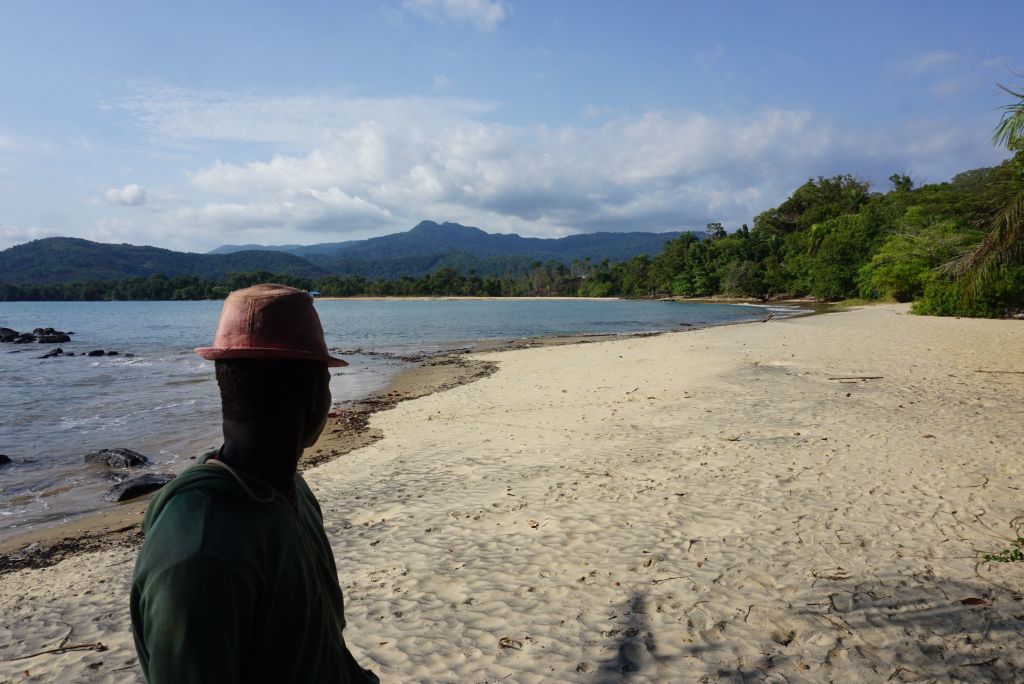ADF STAFF
China’s Belt and Road Initiative (BRI) promised huge investments in ports throughout the world. But the environmental and human cost of these projects are only beginning to be understood, according to new reporting.
Chinese-built ports in Angola, Cameroon, Côte d’Ivoire, Djibouti, Mauritania and Mozambique have become examples of how such projects can disrupt aquatic ecosystems and local artisanal fishing communities, according to a report led by Boston University’s Global Development Policy Center.
Countries on Africa’s Atlantic coast — particularly Angola, Cameroon and Côte d’Ivoire — face the greatest risk to their local fishing communities from port projects. Cameroon’s artisanal fishing communities lead that list, according to researchers.
The construction of Cameroon’s Chinese-funded Kribi port destroyed a popular beach area along with the community of Lolabe, throwing the local population and environment into disarray.
Planners can avoid creating conflicts with artisanal fishing communities by ensuring that those residents are included in the development of port projects. That can ensure that those communities are better off, or at least not worse off, afterward, Rebecca Ray, a senior researcher who worked on the report, said.
“Ports rank as the highest-risk sector for coastal construction, because of the many possible avenues for environmental and social impacts: beyond the noise, light, and habitat disruption from the construction itself, they also bring the potential for significant changes in local ecosystems through the introduction of invasive species who ‘hitchhike’ on incoming ships and the depletion of local fish stocks from new fishing fleets who may come to use the port,” Ray told Voice of America.
Despite the risks to both marine environments and local livelihoods, leaders continue to push port deals.
The Sierra Leone government agreed in 2021 to sell 100 hectares of a popular tourism area for a port the government says will hold tuna-fishing fleets. Part of the proposed port area includes a lagoon that is a crucial breeding ground for local marine life. Community and environmental advocates have labeled the project “a human and ecological disaster” that will destroy pristine forest and maritime environments along with local livelihoods.
“If this is allowed to happen it will jeopardize the entire nation’s food security where 80% of the country’s protein comes from fish and artisanal fishing is most coastal families’ mainstay,” a group known as the Black Johnson Landowners Group wrote in an open letter to President Julius Maada Bio appealing for him to turn down the project.
In early 2022, Bio agreed to submit the project to the legally mandated environmental review, but community groups remain wary.
“The government needs to be careful in how it commits to these [kinds] of agreements and come out clean about this Black Johnson deal,” Med Sillah wrote in response to an opinion piece in the Sierra Leone Telegraph challenging the port proposal.
Mauritania’s 1980s-era Nouakchott Friendship Port, which was upgraded as part of the BRI in 2018, has come under fire from local communities for bringing in Chinese fishing fleets that have overwhelmed local artisanal fishing crews and damaged the environment, according to Ray.
In Angola and Mozambique, more than 2,000 square kilometers of marine habitats are at high risk from port development, the report notes.
The renovation and expansion of Mozambique’s Beira Fishing Port has put the surrounding marine environment at risk within 10 kilometers, making it one of the most damaging projects in the Global Development Policy Center report.
Ray said it is the only port in the dataset developed explicitly for fishing purposes, giving it the potential to have a significant environmental impact.
Reducing the environmental and societal impact of Chinese port projects requires countries to impose greater safeguards and set higher standards.
“It is important to be clear that all planners and lenders, regardless of their nationality, should take care with the natural resources that support traditional communities and coastal economies as a whole,” Ray told ADF.

